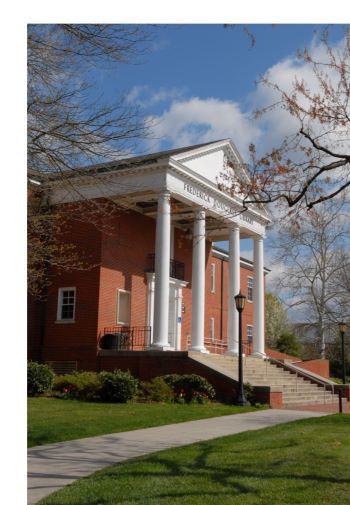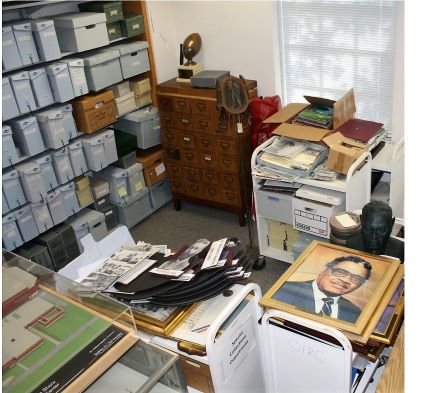$50,000 will help update the university’s special collections’ archives

The University of Maryland Eastern Shore has been awarded a $50,000 federal grant it will use to begin reorganizing and modernizing its history archives.
The Institute of Museum and Library Services, an independent federal agency that supports the nation’s libraries, announced Thursday that 22 projects would share $2.7 million through its Museum Grants for African American History and Culture program. UMES is among eight historically black institutions to receive a grant this year.
Dr. Marshall F. Stevenson Jr., dean of the university’s School of Education, Social Sciences and The Arts, enlisted a committee in the fall of 2019 to compile a report on “special collections” and recommend how a grant could be used to make that content more accessible.
The university subsequently submitted an application to the competitive program requesting a non-matching grant Stevenson said he hopes can be the first step in stabilizing material housed at UMES’ Frederick Douglass Library.
“The grant’s significance,” Stevenson said, “is that it allows UMES to begin the process of formally institutionalizing its history, allowing students and the larger community to see its role in the growth of educational opportunities for African Americans in the state of Maryland, and in particular, the Eastern Shore.”
The university was founded by the Methodist-Episcopal Church in 1886 as a prep school for African-Americans who aspired to go on to Baltimore’s Morgan College. Others enrolled to learn trades common in rural, post-Reconstruction America.
By 1890, Congress had committed to providing financial support to schools like old Princess Anne Academy as a land-grant institution that continues to this day.
The Douglass library is home to unique photos and documents, including donated papers – some labeled while others are not.

“The exact nature of the archival material is not fully known,” UMES’ application noted, “but a preliminary survey has identified major record groups such as church records, photographs, theses, sports memorabilia, 16-mm film and over-sized portraits.
The campus panel that compiled the report envisioned the award serving as seed money that will help transform the university’s archives into a 21st century resource for scholarly research.
Part of the grant would be used to supplement the services of a professional archivist to oversee reorganization of the material and supervise student interns who would get hands-on experience in archival organization.
“Through the systematic cataloging and preservation of material artifacts, written documents, and pictures, UMES will be able to showcase its rich history as a land grant school, reinforcing the important role it has played in producing educated citizens who have made important contributions to the civic life of their home communities,” Stevenson said.
Long term, the UMES sees the grant also as a stimulus for supporting a “teaching with the archives” workshop, stipends for faculty to present research findings, sponsorship of a student symposium on archive holdings and support for exhibits featuring material in the archives.
The Institute of Museum and Library Services “has long supported museums, Historically Black Colleges and Universities and related organizations (that) are dedicated to the preservation and celebration of African American history and culture,” institute director R. Crosby Kemper III said.
“These grants represent the agency’s deep commitment to the advancement of the essential work of our nation’s African American museums and HBCUs,” Kemper said.

